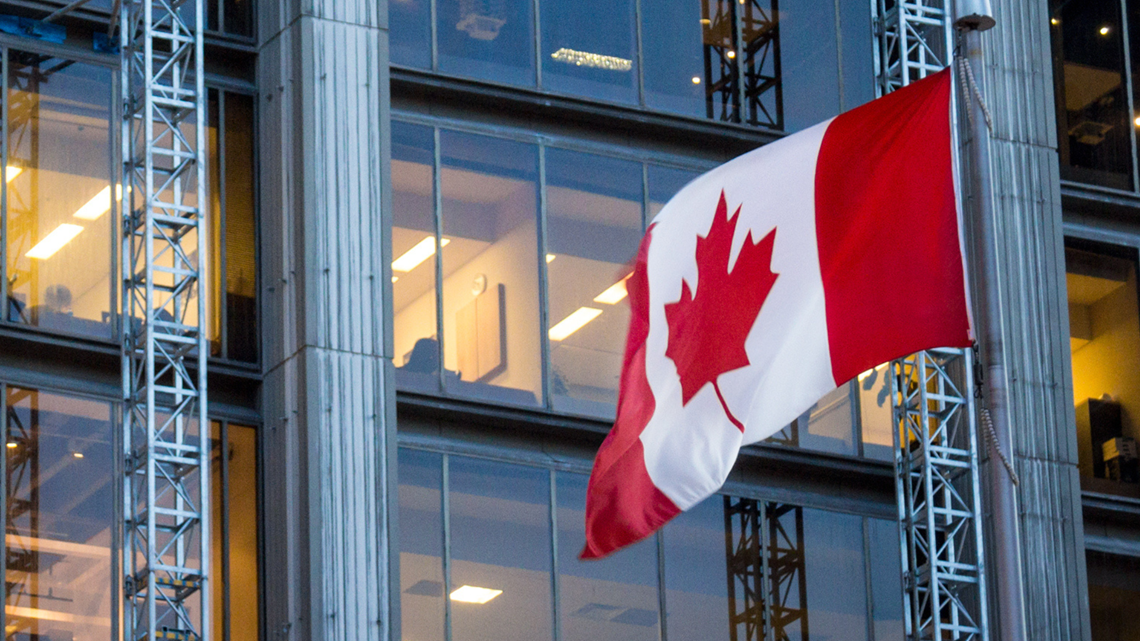Crowe MacKay's tax advisors share details on the new luxury tax and how Canadians may be impacted. If you require assistance, connect with us in Alberta, British Columbia, Northwest Territories, or the Yukon.
Luxury Tax Regime Overview
Canada’s luxury tax was originally introduced in the 2021 Federal Budget and received Royal Assent on June 23, 2022. As part of the Canadian Government’s commitment to a fair tax system, the luxury tax will apply to select luxury goods including:
- vehicles priced above $100,000,
- aircraft priced above $100,000, and
- certain vessels (i.e. boats) priced above $250,000.
Luxury Goods Subject to the Application of the Luxury Tax
The Canadian luxury tax legislation is called the Select Luxury Items Tax Act. Below is an overview of the items subject to the luxury tax when all conditions are met as well as the exceptions for each.
Motor vehicles manufactured after 2018 that are designed or adapted primarily to carry individuals on highways and streets, with a seating capacity of 10 or fewer passengers and have a gross vehicle weight rating of 3,856 kilograms or less will be subject to the luxury tax. This would include:
- Sedans
- Sports cars
- Passenger vans
- Minivans
- SUVs and pick-up trucks
Vehicles excluded from the proposed luxury goods tax includes:
- certain motor homes,
- vehicles that are not street legal,
- ambulances,
- hearses, and
- vehicles clearly marked for police, military, or other emergency services activities.
Aircraft such as airplanes, helicopters, and gliders manufactured after 2018 that are equipped with one or more pilot seats with a maximum carrying capacity of fewer than 40 seats, excluding pilot seats, will be subject to the luxury tax.
Aircraft designed for military activities and equipped only for cargo flights are excluded from the Canadian luxury tax.
Any vessel designed or adapted for leisure, recreation, or sport activities manufactured after 2018. This would include:
- Yachts
- Motorboats
- Sailboats
Vessels that are excluded from the luxury tax include:
- floating homes,
- commercial fishing vessels,
- ferries, and
- vessels with sleeping quarters for more than 100 individuals that are not crew members.
LTN3 Notice
A new notice, LTN3, has been released related to vessels subject to the luxury tax.
In Canada, the luxury tax will not apply to subject items if they are registered with a government (i.e. a province of Canada or the Federal government) and the possession has been transferred to the owner prior to September 1, 2022.
The luxury tax amount will generally not apply to purchasing and selling previously registered vehicles, aircraft, or vessels where luxury taxes were already paid. Purchasers of tax-paid aircraft or vessels will have to provide a tax-paid certificate to the vendor in order for the luxury tax not to apply.
Also, payments between registered parties with the Canada Revenue Agency are not subject to the luxury tax.
Canadian Luxury Tax Rates
The luxury tax rate in Canada is calculated as the lesser of:
- 10% of the total price of the subject items; or
- 20% of the total price above the relevant price threshold.
- For vehicles, $100,000.
- For aircraft, $100,000.
- For vessels, $250,000.


Who is Required to Pay the Luxury Tax?
The luxury tax collected will generally be payable by the registered vendor(s) on the sale of subject luxury items that exceed the relevant price threshold discussed above. Sales to other registered vendors in Canada such as manufacturers, wholesalers, and retailers will qualify for the exemption. If the vendor of the subject item(s) is a federal or provincial government, agent of the Crown, indigenous governing body, or person entitled to tax relief privileges under the Foreign Mission and International Organizations Act (diplomat), the luxury tax will be payable to the Canada Revenue Agency by the purchaser.
When Will the Luxury Tax Come into Effect?
The relevant luxury tax rules will come into effect on September 1, 2022, and will apply to subject items delivered or imported into Canada on or after that date.
Luxury Tax Registration
A person is required to register with the Canada Revenue Agency under the Select Luxury Items Tax Act if the person in the course of their business activities sells or imports subject items that exceed the relevant price threshold. This generally will include:
- manufacturers,
- wholesalers, and
- retailers of subject items.
Once registered, the business will be permitted to import, acquire, and hold subject items as part of their business inventory without the application of luxury tax.
Registration is required by the earlier of:
- the day of the first sale of a subject item exceeding the relevant price threshold; and
- the day of the first importation of a subject item exceeding the relevant price threshold.
Businesses may consider registering ahead of time to ensure they are compliant and can obtain and hold inventory of subject items without incurring the tax.
A person can registered by filing the completed form L500, Luxury Tax Registration Application to the Canada Revenue Agency. The form can be filed:
- online via My Business Account, or
- by mail to the appropriate Canada Revenue Agency office.
A registered person must file a return for each reporting period. In most cases, the return may be filed by mail or electronically; however, the Canada Revenue Agency could require certain persons to file electronically.
In general, the reporting period of a registered person is a calendar quarter. The return must be filed by the end of the month that follows the end of a reporting period, and any payment owing for the reporting period is also due at that time.


Additional Luxury Tax Information
Will the Luxury Tax Apply to Leases?
In general, the Canadian luxury tax regime will apply to leases of subject items. Taxes are payable at the time when the lessee has the right to use the subject item under the lease, licence, or similar arrangement. Self assessment of the tax may be required by the lessor.
Tax on Improvements Made to Subject Items
The cost of improvements for subject items at the time of purchase and sale is included as part of the total price and is subject to the Canadian luxury tax.
The definition of ‘improvement’ includes:
- tangible personal property that is installed in or on the subject item, or
- a service that modifies the subject item and is physically performed in respect of the subject item.
Improvements that are not subject to the luxury tax include:
- repair, cleaning, or maintenance service;
- tangible personal property to replace a damaged, defective, or non-functioning item;
- child safety equipment; or
- a property or service that specially adapts the subject vehicle for its use of transporting an individual using a wheelchair or an auxiliary driving control to facilitate the operation of the vehicle by an individual with a disability.
Read Full Details on the New Luxury Tax
This article has been published for general information. You should always contact your trusted advisor for specific guidance pertaining to your individual tax needs. This publication is not a substitute for obtaining personalized advice.
If you are looking for Tax Services, Crowe MacKay provides personalized support. Our tax professionals will help you maximize tax-planning opportunities and ensure the minimum amount required by law is paid.

Let's Discuss!
Thank you!
Thank you for your submission someone will be in contact with you shortly.




